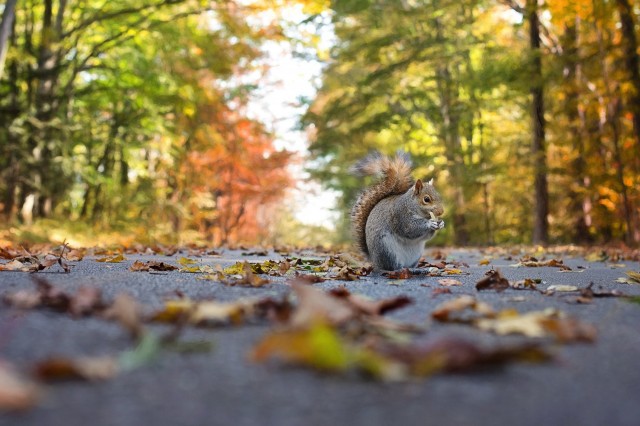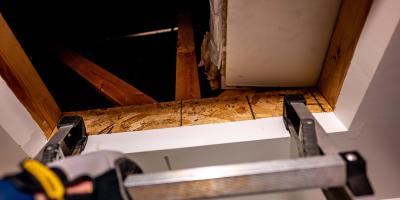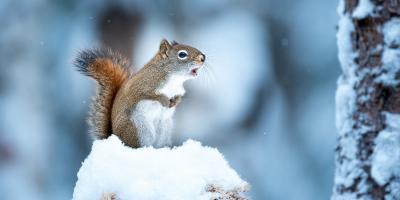Squirrels Everywhere: Why This Year Has Been So Heavy On Squirrels

Whether you’ve seen them ambushing bird feeders or taking daring dashes across the road, almost every New Englander who’s experienced the start of this fall season has noticed one major change: squirrels are everywhere this year.
While the reasons behind this squirrel-heavy season may be perfectly natural, the presence of so many rodents can bring serious ramifications for homeowners and businesses all throughout the northeast.
Here’s a look at some of the causes and effects of this bump in the squirrel population, and what it could mean for your pest control efforts through the fall, into winter, and well into the spring and summer ahead.
It All Started With a “Nutty” Year for Local Oaks
The question you may be asking: are there actually more squirrels this year? If so, what causes the population to boom like it has?
The answer, it turns out, is an emphatic yes - and the reasons go all the way back to last autumn.
According to research by the University of New Hampshire, last autumn was a bumper crop for acorns - also called a “mast year” - when conditions were just right for our local oak trees to produce a huge amount of acorns.
For a hungry squirrel getting ready for winter, that means the entire world was one big all-you-can-eat buffet. As a result of all that food, many more baby squirrels have been able to successfully survive and grow through this year.
Now, all of those baby squirrels are reaching adulthood - and gaining the appetite that comes with it. That has not only caused a marked increase in the number of squirrels that meet their end on the roadways, but has also had a real effect for farmers battling to protect their crops from the encroaching rodents.
Squirrels Aren’t The Only Issue
This rise in the squirrel population may be the result of the natural boom-and-bust cycle of acorn production, but it doesn’t just stop there.
Other acorn-eating rodents and pests - including chipmunks, voles, blue jays, deer, bears, and others - also benefit from the increased availability of food, although the rise of these populations may not be as immediately apparent as the road-daring squirrels.
And, because many of these acorn eaters are regular carriers of ticks, that means this increase has also contributed to the spread of Lyme disease.
Also benefiting from the booming squirrel population are predators like hawks, owls, bobcats, and fishers. That means homeowners who are dealing with an increase in squirrels also need to keep their eyes out for these sometimes-nasty second-level wildlife hunters as well.
What Does This Mean for Homeowners?
Homeowners all around New England - and, indeed, across the country - are dealing with more squirrel problems than ever this year.
From squirrels attacking bird feeders to actually making their way inside to wreak havoc in attics and basements, these rodent encounters are on the rise alongside the population. That increases the risk of bites from squirrels, transmission of ticks and Lyme disease, and the introduction of other insects and pests carried by squirrels into your space.
Additionally, squirrels can cause physical damage to your home itself. Between chewing on electrical cables and spreading urine or feces wherever they may end up, squirrels are not shy about creating hazardous conditions for the humans they encounter.
Take Action Today, and Prepare For Next Season
Whether you’ve dealt with squirrel issues in years past, are facing new problems this year, or hope to prevent squirrels from causing headaches in the months ahead, an experienced pest professional may be able to offer the ideal solution for your unique needs.
For those battling squirrel invaders inside your home, shed, or other indoor space, our JP Pest Services Squirrel Removal experts can safely and humanely capture and remove squirrels from your property. No need to put yourself or your family in harm’s way when a professional can complete the job safely and quickly.
Additionally, our squirrel specialists can help create an individualized prevention and exclusion plan for your home moving forward, helping to close gaps and identify weak points on your property where squirrels may be most likely to enter.
Don’t wait for this year’s boom in squirrels to take over your space - act proactively and contact our team today. Together, we can make sure your home is no home for squirrels regardless of how many there may be in the trees.



